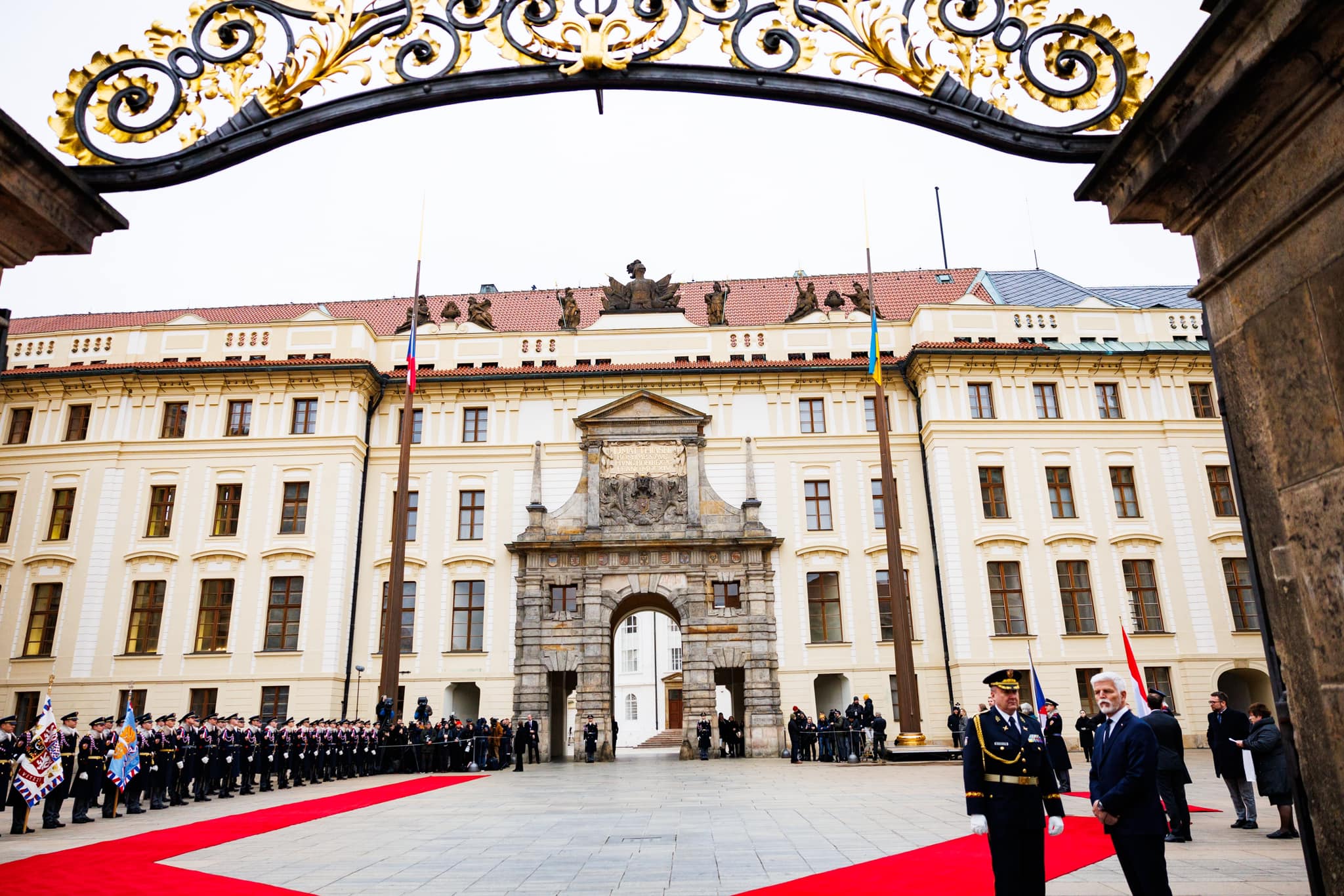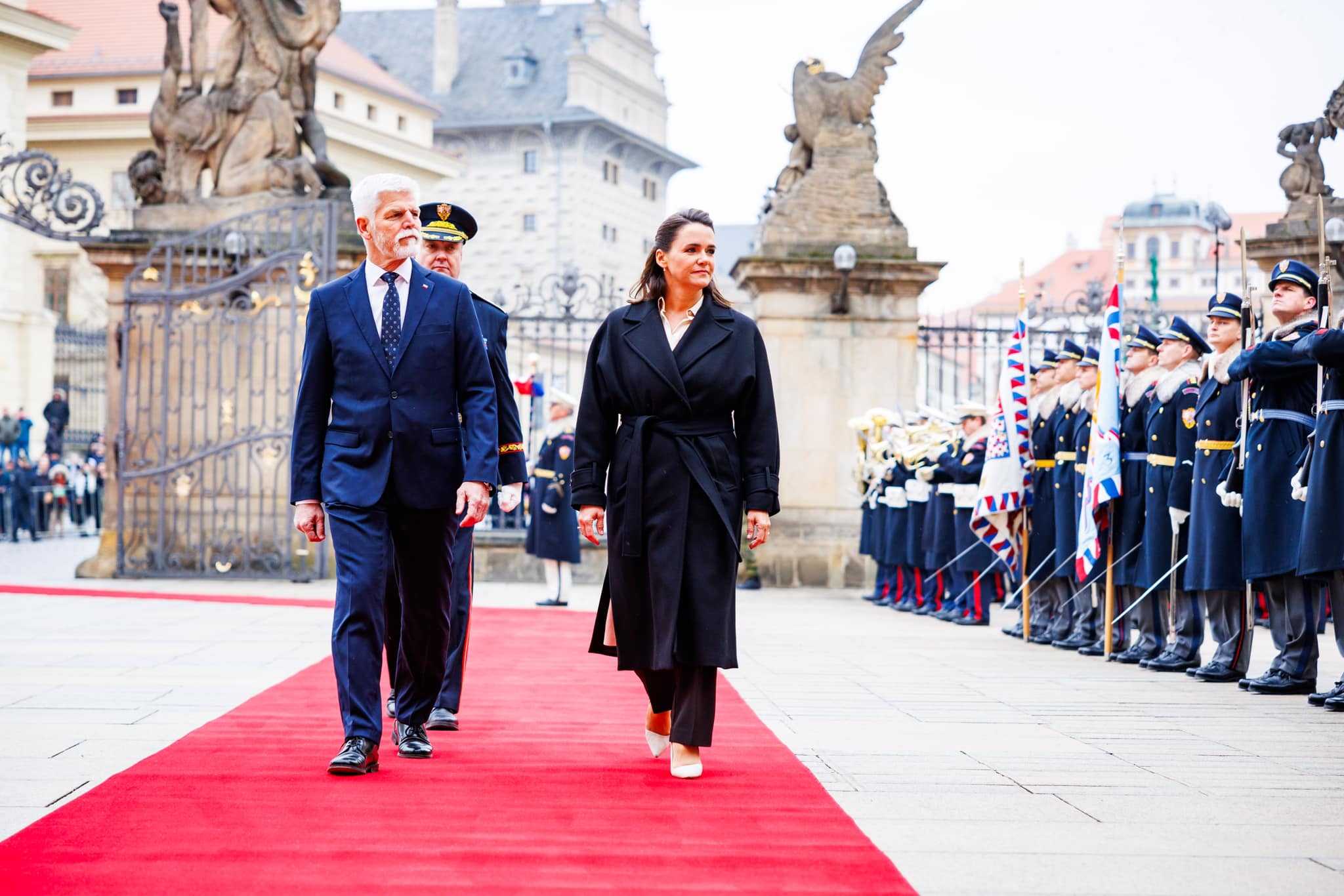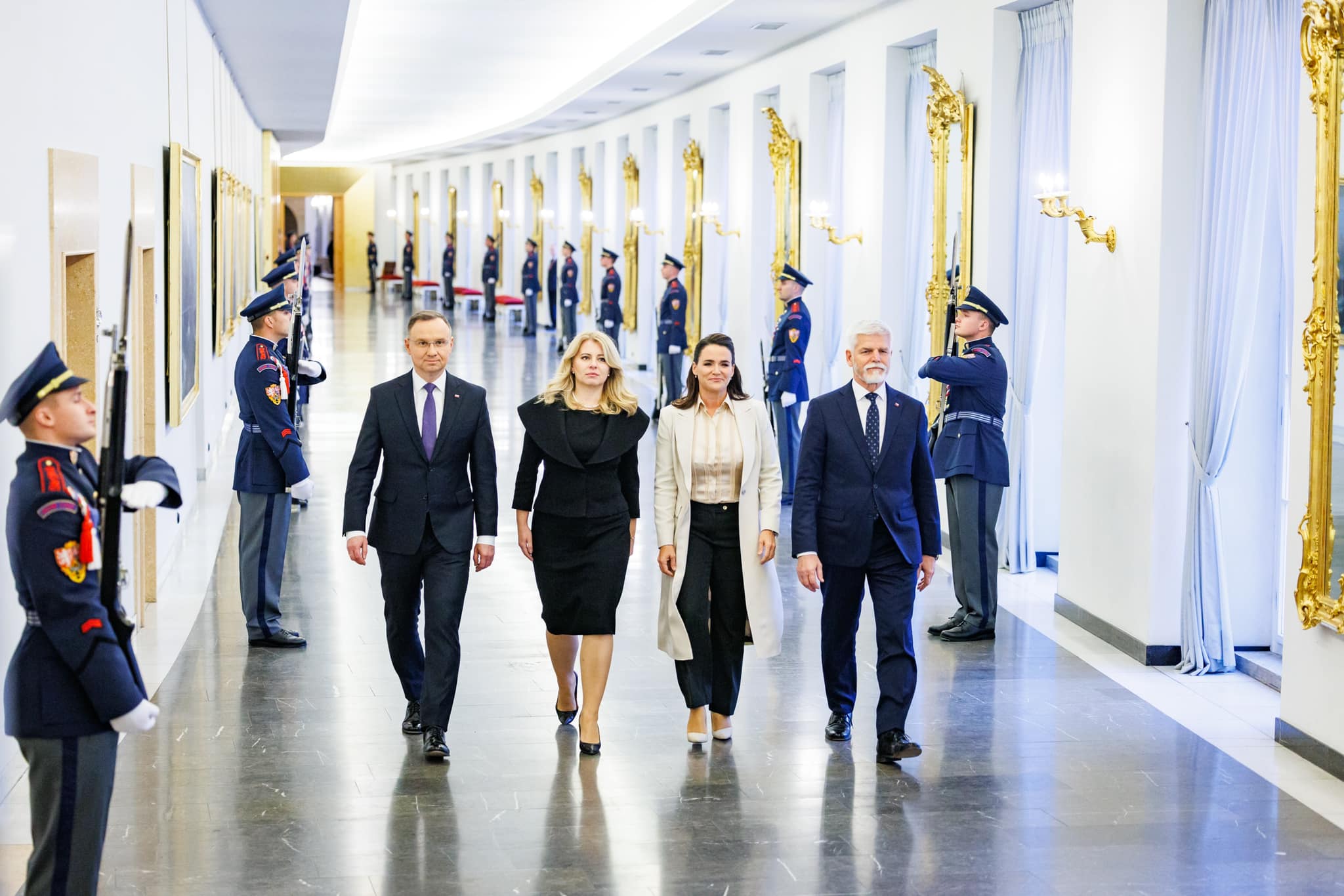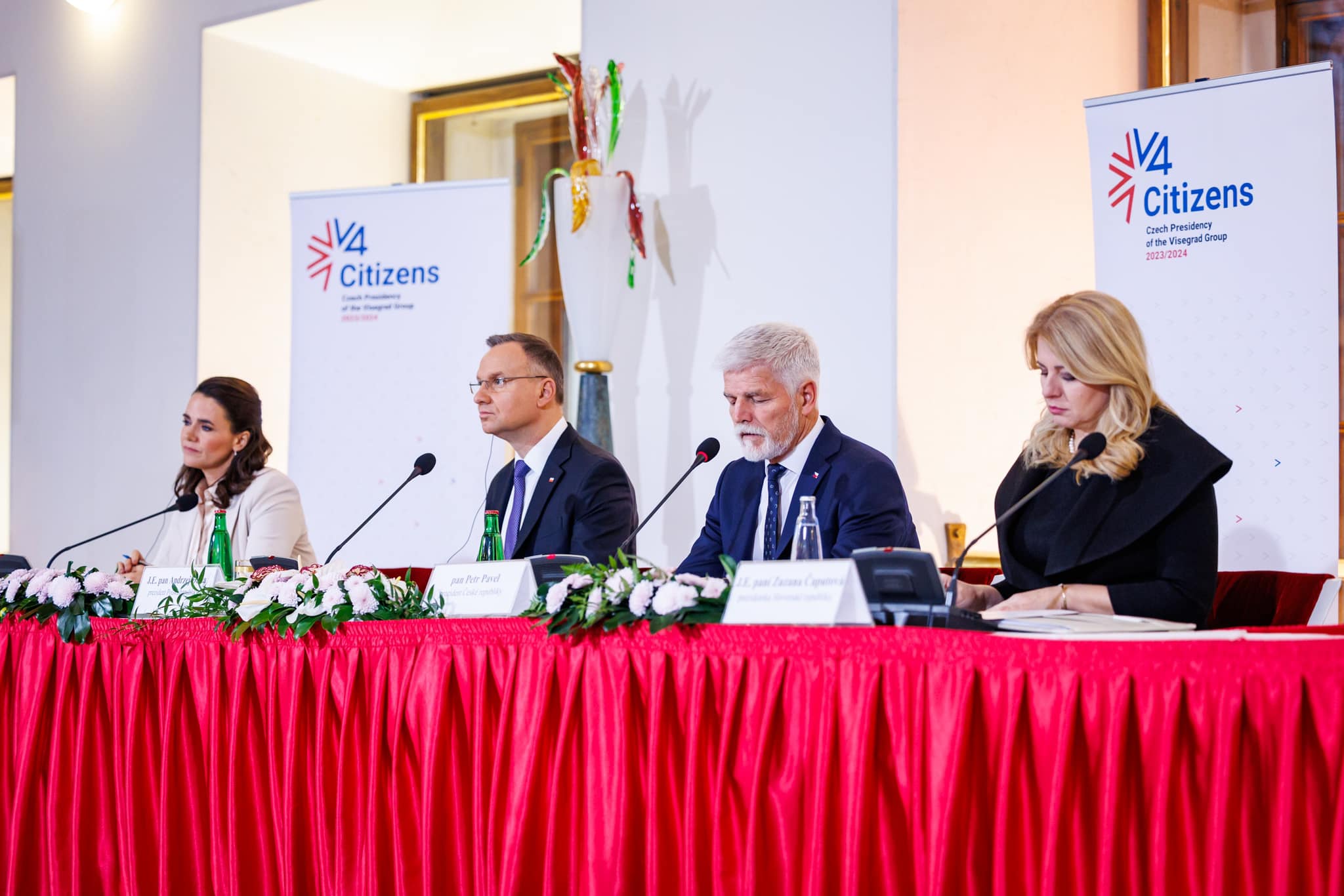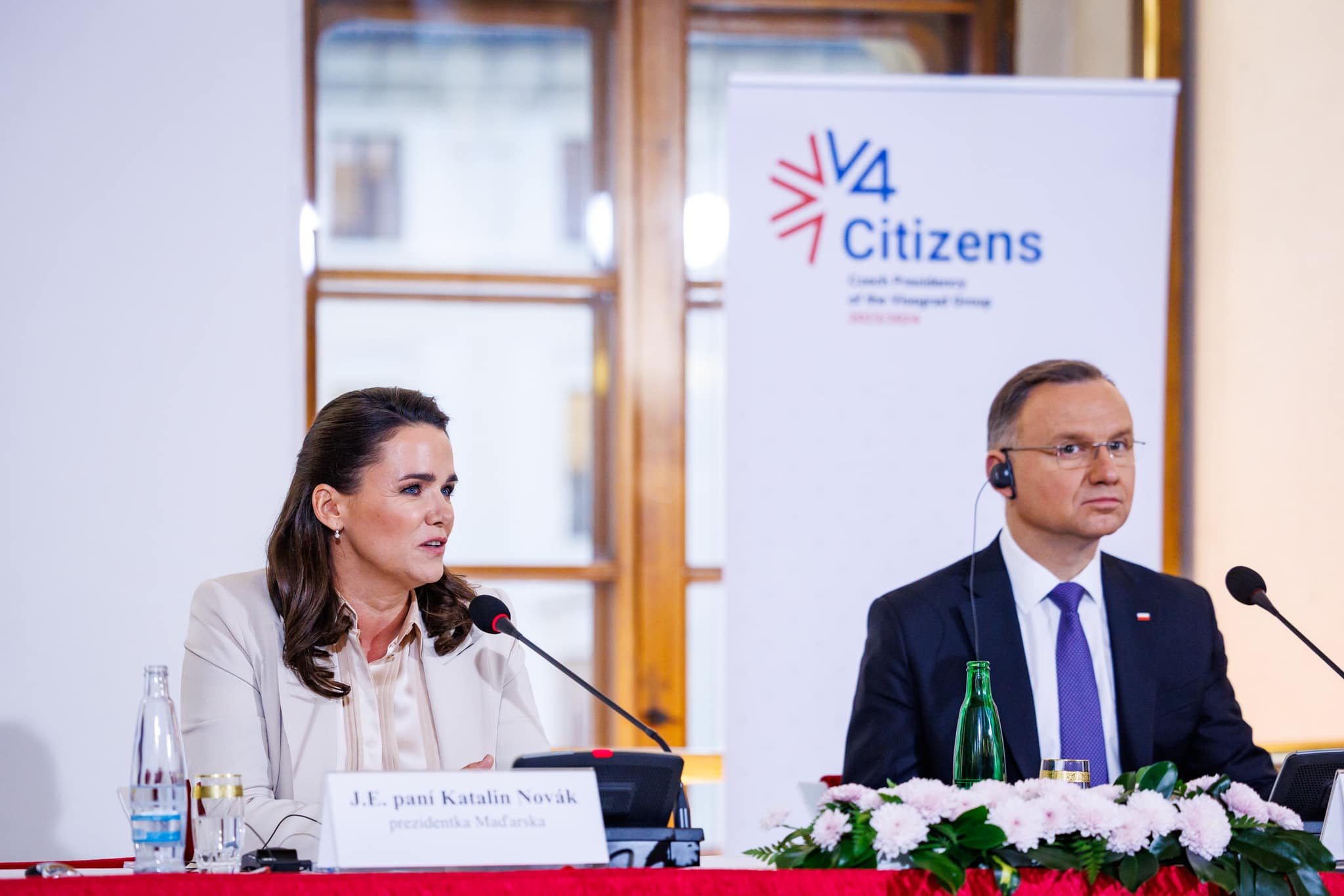The Visegrád cooperation is alive and well - Katalin Novák at the V4 Heads of State Summit in Prague
The Visegrád cooperation is alive and well, and has a long future ahead of it, the President of Hungary said at a press conference on Wednesday following the Visegrád Heads of State Summit in Prague.
Katalin Novák said that the cooperation between the Visegrád countries has existed for almost 700 years and the Czech Republic, Poland, Hungary and Slovakia intend to maintain it and give it substance.
The issue of security was a key topic at the meeting, with the Head of State saying that the Visegrád Four "form a safe island in the heart of Europe", a quality they regard as a "treasure" and which they would like to preserve in the long term.
The protection of the European Union and the Schengen borders, effective action against illegal mass migration, and the protection against terrorist actions are also of utmost importance, said Katalin Novák.
Regarding the war in Ukraine, the President said that there is unanimity that Russia cannot win the war, that they are on Ukraine’s side, and that the Visegrád countries are each trying to help Ukraine in their own way so Ukraine can defend its nation and country effectively.
At the same time, President Novák drew attention to the situation of the Hungarian minority in Transcarpathia. She pointed out that Hungary’s position is non-negotiable and asked her counterparts to pay special attention to this issue.
Concerning the "brutal terrorist attack" on Israel, she said that the V4 Heads of State agreed on the need to prevent an escalation of the conflict and to minimise civilian casualties. The President reiterated her call on the Palestinian Islamist organisation Hamas to release the hostages, with a special focus on the Hungarian hostages, and welcomed the potential agreement on a ceasefire and the release of hostages.
Katalin Novák stressed that Hungary is clearly committed to the security of the members of the Jewish community and will continue to guarantee it in the future. According to the Head of State, they also discussed how to speed up transportation between the countries, achieve independence from Russian energy sources and a transition to green energy. On the latter, Katalin Novák reported on the participants' agreement that "nuclear energy must be preserved as a clean energy source" and must continue to be relied upon in the future.
In the context of maintaining Europe's competitiveness, she mentioned the issue of demography, saying that if negative demographic trends cannot be reversed, there is little chance of maintaining or increasing Europe's competitiveness. We need to understand why not enough children are being born and help young people to have as many children as they want, when they want them," she said.
Katalin Novák announced that she has proposed an increase in the amount of the Visegrád Fund, which currently has an annual budget of €10 million.
The Hungarian President called for the amount to be doubled, because, according to her, this would provide greater opportunities to support initiatives that strengthen cooperation between the countries involved, as well as help to look beyond the Visegrád region and support other countries as well. The Head of State also mentioned that next year Hungary will hold the rotating presidency of the EU and Poland will chair the V4 cooperation. She said she hoped the two countries can act as strong allies during this period.
When asked about the withholding of EU funds, the President said she would find it "to be of concern" if it turned out that the allocation of EU funds was purely a political issue and depended only on whether Brussels has a liking for the government of a given country.
The President hopes and trusts that the assumption that the decision is purely political will not be substantiated, she said. She stressed that Hungary had fulfilled the conditions set by the European Commission, but had not received the sums it was entitled to. In her opinion, this "undermines citizens' trust in the European Union", not only in Hungary but also in many other EU member states.
When asked how big the Russian threat is to Europe, she replied briefly that "the last two years have sent a clear message to Russia: don't mess with NATO."


